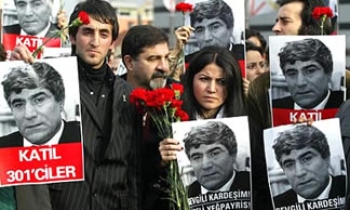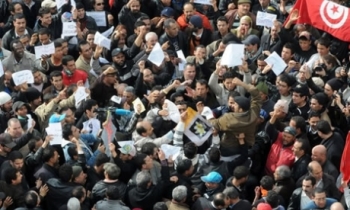Anders Fogh Rasmussen, prime minister of Denmark, has warned that Europe's Muslims need better education and job opportunities if religious confrontations, such as the violent protests over the Prophet Mohammed cartoons, are to be avoided.
In an interview with the Financial Times, Mr Rasmussen said the crisis, which followed riots by immigrant youths in France late last year and suicide bombings by Muslim extremists in London in July, showed Europe had failed to integrate its Muslim minorities. "Better education and more jobs for immigrants - these are the main elements of better social cohesion all over Europe," he said.
An apparent campaign by some Danish-based Muslim leaders to drum up a Middle Eastern response to the cartoons - published last year by Danish newspaper Jyllands-Posten as part of an experiment exploring freedom of expression, and reprinted by newspapers in Europe and other parts of the world in the past month - erupted in violent attacks against Scandinavian foreign missions in the Middle East.
The conflict has forced Denmark, a traditionally non-confrontational Scandinavian country, to scale back its diplomatic representation in the region and to warn its citizens against travel in large parts of the Muslim world.
Meanwhile, goods produced by Danish companies are subject to a widespread boycott in the Muslim world, and some Norwegian companies have faced hostility. Moreover, Denmark's military presence in Iraq has come under attack from local authorities and Scandinavian peacekeepers have faced violence and aggression.
Mr Rasmussen said the conflict reflected more general mistrust between Europe and the Islamic world. Some Muslim countries and extremist groups had "taken advantage" of the controversial drawings, which Muslims consider blasphemous, to further their own political objectives. "This is a challenge for Europe. It is not just a problem between Denmark and the Muslim world," the prime minister said.
"When we saw attacks on the foreign missions of several European countries - when we saw violent demonstrations - it became clear it was no longer about 12 drawings in a Danish newspaper. It was much more about political and religious tensions in the Muslim world."
To reduce Muslims' sense of alienation in Europe, governments should help immigrants improve their material standing through more efficient language tuition and job programmes, Mr Rasmussen said.
According to the Danish ministry responsible for migration, barely more than half of Denmark's male immigrants from non-western countries were employed at the last count, while the proportion for women was 35 per cent.
Denmark has a dynamic jobs market and a jobless rate well below the European Union average, but the employment rate of its immigrants compares poorly with the 63 per cent for non-western male immigrants in Britain and Germany. Only in Sweden, another traditionally liberal Scandinavian country with a generous welfare system, is immigrants' participation in the labour market as poor as in Denmark.
The tough immigration policies introduced by Mr Rasmussen's first government in 2002 have sparked accusations from immigrant groups of increasing hostility towards ethnic and religious minorities.









